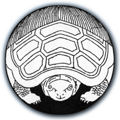 This is my bad cat, Weens. When I took this picture, he was helping me edit the manuscript for my new novel, A Tale for the Time Being, which you can see, glowing on the screen behind him. He is lying on top of my Chicago Manual of Style, and also on top of In the Beginning, Woman Was the Sun: The Autobiography of a Japanese Feminist, written by Hiratsuka Raichō (1886 - 1971), founder of the Japanese feminist literary magazine, Seitō (Blue Stocking). In the Chicago Manual of Style, I was looking up the proper format for foreign language footnotes, appendices and bibliographies, of which there are many in this novel. In Raichō's autobiography I was reading a poem, written by Yosano Akiko for the inaugural issue of Seitō entitled "Rambling Thoughts." Raicho quotes the first few lines, and so will I:
This is my bad cat, Weens. When I took this picture, he was helping me edit the manuscript for my new novel, A Tale for the Time Being, which you can see, glowing on the screen behind him. He is lying on top of my Chicago Manual of Style, and also on top of In the Beginning, Woman Was the Sun: The Autobiography of a Japanese Feminist, written by Hiratsuka Raichō (1886 - 1971), founder of the Japanese feminist literary magazine, Seitō (Blue Stocking). In the Chicago Manual of Style, I was looking up the proper format for foreign language footnotes, appendices and bibliographies, of which there are many in this novel. In Raichō's autobiography I was reading a poem, written by Yosano Akiko for the inaugural issue of Seitō entitled "Rambling Thoughts." Raicho quotes the first few lines, and so will I:
The day the mountains move has come. Or so I say, though no one will believe me. The mountains were merely asleep for a while. But in ages past, they had moved, as if they were on fire. If you don't believe this, that's fine with me. All I ask is that you believe this and only this, That at this very moment, women are awakening from their deep slumber. If I could but write entirely in the first person, I, who am a woman. If I could but write entirely in the first person, I, I.
Weens lives entirely in the first person. He is a male, but even if he were a female, he would live only in the I, and only in this very moment, because he is a cat. He views my typing as an utter waste of serviceable fingers that could be more gainfully employed in rubbing the irregular white patch on his nose, in between his eyes. He doesn't care a bit about the proper format for citations, in fact, he drooled all over them. There are sharp claws on the end of that outstretched paw, just outside the frame of the picture, and when I took this picture, he was trying to use them to snag my wrist and pull my hand to his head. I knew if I ignored him, he would fall back to sleep or walk away in a huff, and then I could get some work done, but he succeeded, and I succumbed. How could I not? There is no way on earth to write entirely in the first person. There is only I, and I.


